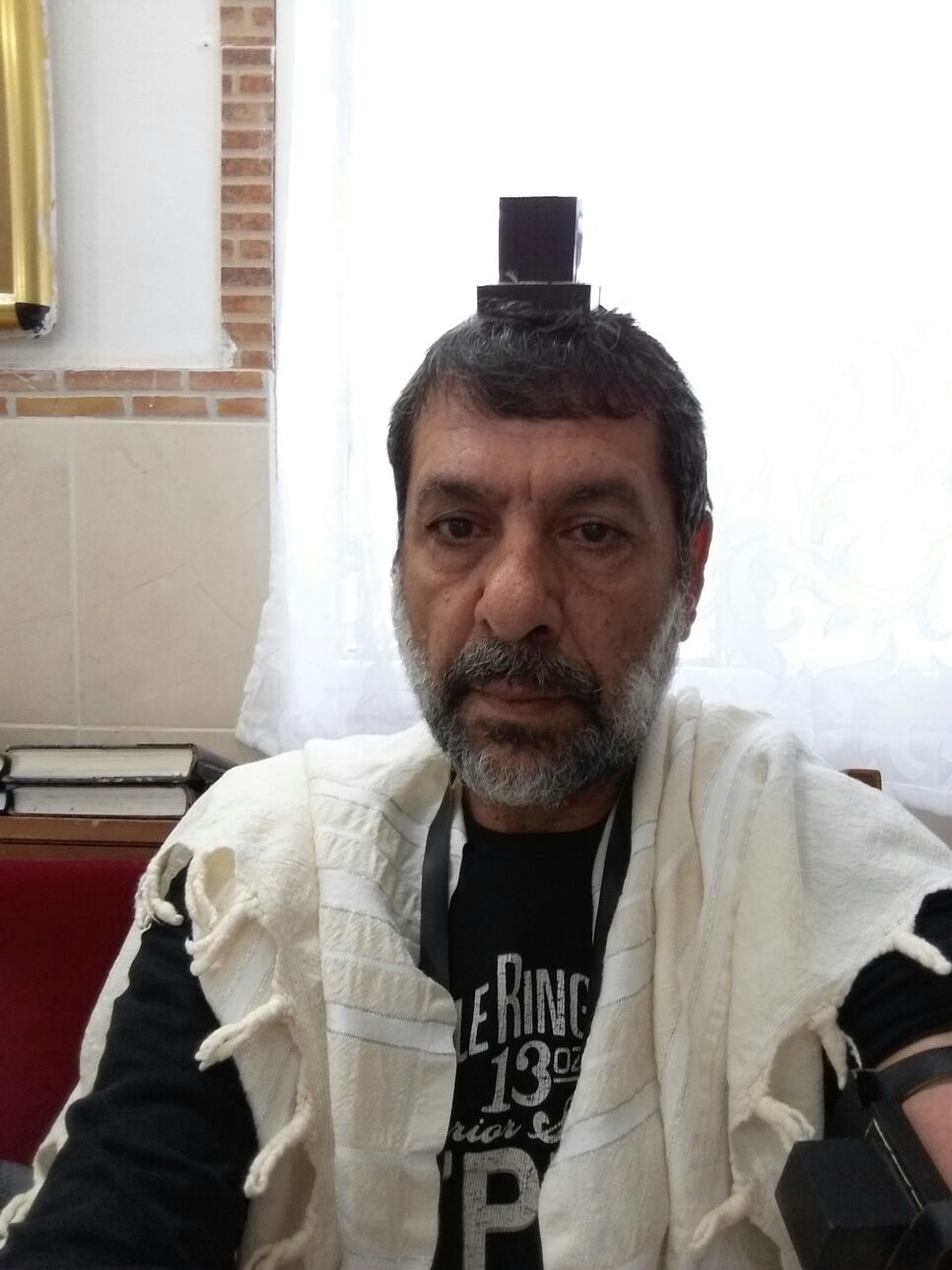The Former Mizrahi Singer: "My Faith Was Empty Words Without Action"
Shmuel Moyal, formerly known as Sami Miali, was a successful Mizrahi singer. However, none of his fans knew that for years he battled depression and sadness. "I found happiness only when I found Judaism," he says in an interview with Hidabroot.
 Shmuel Moyal
Shmuel MoyalFor many years, Shmuel Moyal, or as he was known then: Sami Miali, performed in clubs and on stages. He sang many songs in Turkish and Moroccan, achieving great success. Yet all that time, he always felt something was missing, something prevented him from being truly happy.
"I was sad," he says. "At night, I performed successfully in front of hundreds of people, but at home, anxiety and sadness hit me. I wasn't happy, despite all the success, fans, and money. I always believed in Hashem, but it was only in words, not in actions."
Moyal was born in Morocco and immigrated to Israel when he was two. As the son of divorced parents, he experienced a complicated childhood. From a very young age, he stood out with his pleasant and clear voice. "They didn't teach me to work as a child," he says. "They only taught me to sing, and that's what I did. From the age of ten, I would perform at bar mitzvahs, circumcisions, and events, singing. I loved it. Although I studied, I only wanted to sing. Music was always a part of my life."

Moyal describes growing up in a non-religious home, where there was little connection to Judaism, even though he always believed in Hashem. "Today, it's hard for me to understand how I didn't observe Shabbat despite my belief. My faith was only empty words, not actions."
After his military service, Moyal began to perform and release singles that were successful. But despite the success, something was always missing. During that period, he encountered a personal crisis marked by severe depression and panic attacks that wouldn't go away. He stopped singing and left the music, which he describes as his whole world. "For two years, I didn't touch music; I was sad. I felt a terrible emptiness despite the success."
During those years, Moyal got married, and surprisingly, his new wife was very different from him. "I married a religious woman from a religious family," he says. "I was completely secular, but she was, and still is, fully religious—dressing modestly and covering her head. Although I was secular, she didn't give up on me. After the wedding, I observed Shabbat for her, even without wearing a kippah. We didn't have a television at home. I did everything for her, to make her happy, but I lacked the strengthening and belief in Hashem."
At that time, Moyal reached a crossroads, knowing he had to decide whether to choose his family or his career. "I was performing in clubs and bad places, with many temptations. I knew I had to choose whether I wanted to continue being a famous singer, with all that it entails, or choose my family. I had no doubts for even a moment; I chose my family. I brought income home, but I never gave up my warmth, always continued to sing."

After all these years, what made you return to religious observance?
"I was always traditional, but that was all. I didn’t pray or wear a kippah, my belief was in my heart, but something was always missing. I saw I wasn’t complete, it was difficult for me. All those years, I was always a sad person, but suddenly I understood that the Torah makes you a completely different person. I decided to change my life, make a turn, and try something new. I told myself if I return to faith, the sadness and anxiety would disappear, and so it was."
Among other things, Moyal recounts that one of the biggest influences in strengthening his faith were lectures from Hidabroot rabbis he listened to during the day. "I started listening to lectures by Rabbi Zamir Cohen and Rabbi Yigal Cohen, and through them, I came closer to belief in Hashem. I have great appreciation for Hidabroot; it's a place of holiness."
After he began to return to Judaism, Moyal approached Rabbi David Abuhatzeira, who advised him to change his name to "Shmuel" instead of Sami. Moyal obeyed and changed his name, and with the change, he describes being born as a new person. "I was always a quick-to-anger person," he says. "I would get angry over nonsense, the smallest things, and suddenly everything changed. There’s no more anger or nerves. Returning to faith made me a complete person, calmer, and happier."

What reactions did you receive from your surroundings?
"It always pained my wife that I wasn’t observant of Torah and mitzvot. She is a righteous woman, who dresses only in dresses and with her head covered, and it pained her greatly when people would approach her on the street and say: "Is that your husband?! It can't be!" When I started to return to religious observance, there was such joy in the world. The blessings I received from my wife and the reactions from people who knew me during the years I was performing were worth all the hardships. When I was a successful singer, people would take pictures with me in the street; today, after returning to faith, I see much warmer reactions. I get hugs and kisses on the street. Despite having villas, money, and cars, I lacked the peace and tranquility of the Torah. The Torah means everything to me."
When he first began to embrace Judaism, Moyal recounts performing at an event. While performing, an anonymous person, whose identity Moyal still does not know, approached him and asked him to wear a kippah. "He told me: "You have the privilege to make people happy, try to keep this kippah on your head," and from that moment, the kippah stayed. I came home and told my wife: "The kippah will never come off my head again!"
The change he underwent also manifested in his music. "Unfortunately, I made people happy with non-religious songs, but I decided to change that, try to amend." Moyal released a large portion of his songs anew, this time in religious and clean versions. A large portion of his current songs, he says, are piyutim and requests.
Even his daily routine changed completely, as he now dedicates a large part of his time to Torah study and listening to Torah lessons from Hidabroot rabbis. His great aspiration these days, he says, is to go out and inspire people with his personal story. "I think many people can be strengthened by the fact that I, who was a successful singer and had money, villas, cars, and everything possible, returned to faith. What matters to me now, more than singing, is to go out and inspire others. I want to tell them: if I, formerly Sami Miali, could return to faith, so can you."

